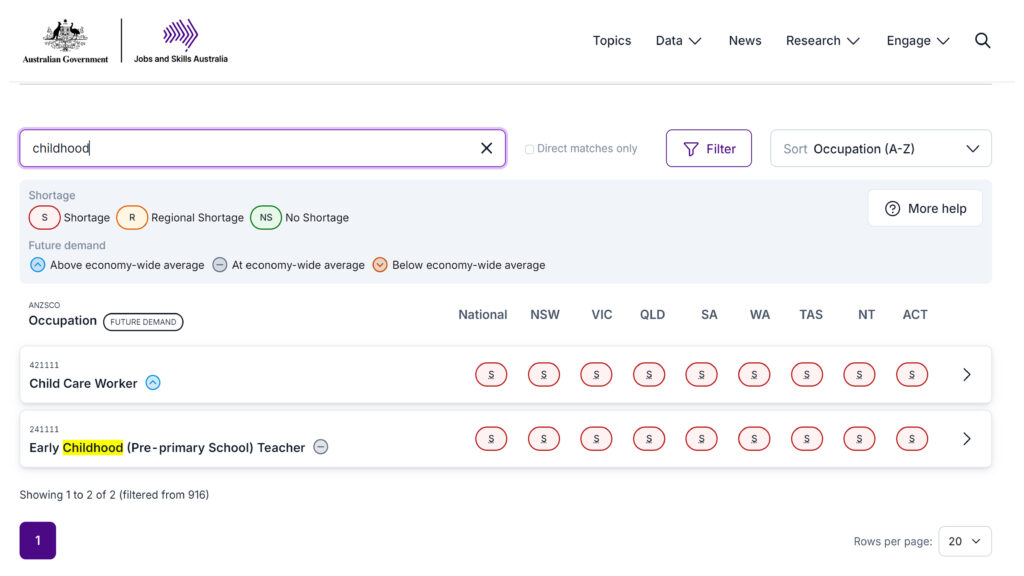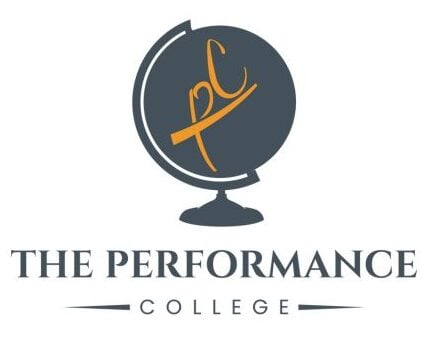Early Childhood Education is a program for individuals to contribute to the educational and caregiving needs of young children, typically from birth to the age of 8. This course is appealing especially for international students who have a passion for kids and work in the childcare industry. This curriculum teaches about aspects of child development, physical, mental, and social dimensions. It shows participants with the skills to establish meaningful connections and effective communication with both young children and their families.
Courses in Childcare Industry:
● Certificate III Early Childhood Education and Care
● Diploma in Early Childhood Education and Care
● Bachelor in Early Childhood Education and Care
● Master in Early Childhood and Care
Why pursue Early Childhood Education and Care in Australia?
1. International Standard Qualification
Australia stands as a global leader in the education industry, it offers a diverse course of childcare education and qualifications. From Certificate III Early Childhood Education and Care to master’s in early childhood and care. Before pursuing higher education in childcare, students must have Certificate III and complete the required 160-hour work placement in childcare.
Australian programs are distinguished by their top-notch curriculum, comprehensive training, and commitment to delivering high-standard-based practices. Graduate students are equipped with the skills necessary for success in their careers, whether domestically or internationally opportunities.
2. Career On Demand in Australia

When you visit the Job and Skills website of the Australian Government and enter keywords such as “childhood” or “childcare” by February 2023, the data reveals the shortage of childcare workers and future demand across every state in Australia. This indicates that now is the precious opportunity to start studying Certificate III Early Childhood Education and Care and embark on your career.
3. Opportunity To Get a High Pay Rate (Research updated by 3 January 2024)
An early childhood educator in most states typically requires active enrolment in a Certificate III in Children’s Services (or Early Childhood Education). This course not only essential skills for working with children but also introduces learners to the Early Years Learning Framework. For those still in the process of completing their Certificate, the starting hourly wage is $23.11, while qualified individuals can anticipate an hourly pay rate of $25.78 and above.
A diploma qualification has a much wider scope of knowledge for employees, surpassing those with only a Certificate. With the advanced skills and education conferred by a Level 5 Diploma in Children’s Services, one can expect a minimum wage of $29.48 per hour (or $1,120.40 per week). This qualification also paves the way for progression into senior childcare roles and a managerial position in childcare centers.
For those with a Bachelor of Education (Early Childhood), a distinct pathway unfolds as they assume the role of an Early Childhood Teacher. Unlike other positions within a childcare center, including the Center Director, Early Childhood Teachers must hold a bachelor’s degree. Their salaries adhere to the guidelines outlined in the Education Services (Teachers) Award. Starting at $67,513 per year (or $1,293.80 per week), this salary increases steadily with accumulating job experience, reaching approximately $80,000 to $93,000 per year.
Requirements for Certificate III Early Childhood Education and Care in Australia
International students who want to start studying for Certificate III Early Childhood in Australia must fill up the student application and meet the basic requirements below:
- Minimum IELTS score of 5.5 or equivalent* or a minimum of two (2) years of study at an AQF Level 4 or higher completed in Australia.
- Be at least 18 years above.
- Satisfactory completion of Australian Year 11 or equivalent.
- A mandatory 160 hours of work-based training in a regulated children’s education and care service in Australia.
- To work on assessments, tasks, and self-study all learners are expected to have access to a laptop or computer at their own cost.
Course duration 1 year
Cost of Studying Certificate III in Early Childhood Education and Care at The Performance College, Melbourne
At TPC the cost of Certificate III Early Childhood Education and Care is around $12.000/year. This price range is provided after the discount we give students.
NOTE: The costs shown here are only estimates; actual costs may differ. It is recommended that you check with the marketing team.
Careers Opportunities After Completed Certificate III in Early Childhood Education and Care at TPC
After finishing Certificate III in early childhood education, the students will have a choice to pursue higher education in diploma of childcare and open more job opportunities and get higher pay rates. Here are some common employments, but not limited to:
● Childcare Worker
● Early Childhood Educator
● Family Day Care Educator
● Kindergarten Assistant
● OSHC Educator
Pathway and Accreditation
Upon successful completion, you may consider applying for entry into the Diploma of Early Childhood Education and Care.
The Certificate III in Early Childhood Education and Care (CHC30121) is now a prerequisite for the Diploma in Early Childhood Education and Care.
For students holding a Certificate III in Early Childhood qualification issued before CHC30113, an RPL (Recognition of Prior Learning) or RAP (Recognition Assessment Pathway) process is necessary to acquire the prerequisite qualification (CHC30121 – Certificate III in Early Childhood Education and Care) for entry into the Diploma program. For more details on this process, please reach out to us through a course inquiry submission here.
It’s important to note that this course is accredited by the government and holds national recognition.
The qualification aligns with the Australian Qualifications Framework (AQF) at level 3.
Conclusion
Education plays a crucial role in fostering both personal and professional development. The pursuit of higher education can take different paths. These educational levels vary in difficulty, time commitment, and subject depth, providing diverse opportunities for growth and advancement. Selecting the appropriate level of education is key, aligning with individual objectives and future professional aspirations. Making informed choices ensures a pathway that best suits personal goals and contributes to long-term success.





